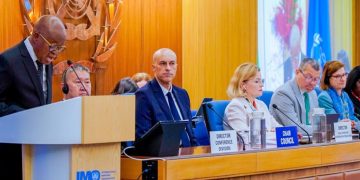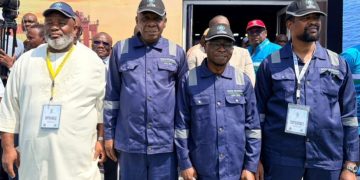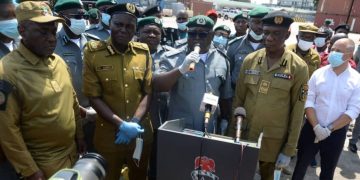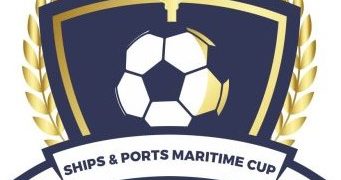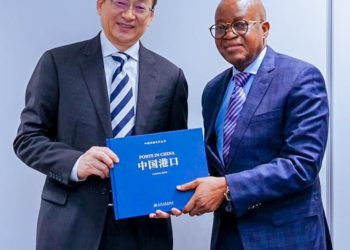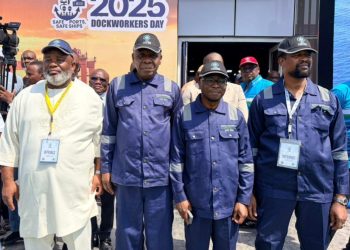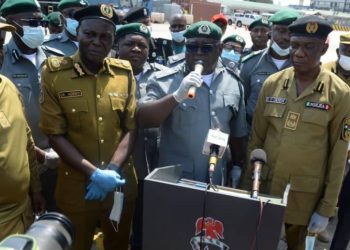- Customs Area Controller, Apapa Area Command, Compt. Babatunde Olomu (middle), discussing with the representative and Head of Operations, Nigerian Railway Corporation, Akin Oshinowo, during the engagement
By Anthony Nwachukwu
The Apapa Area Command of the Nigeria Customs Service (NCS) has engaged key stakeholders, including the Nigerian Railway Corporation (NRC), clearing agents and freight forwarders, among others, to improve trade facilitation and optimise rail movement of cargo.
According to Compt. Babatunde Olomu, the meeting held at the Apapa Area Command, was in line with the directive of the Comptroller-General of Customs, Adewale Adeniyi, to improve logistics through multimodal transport systems.
“Recall that rail has been in operation for quite a while, so we want to fine-tune the process to improve our trade objectives. When we have a seamless trade process, it will benefit our stakeholders who are here today,” a statement by the Command Public Relations Officer, Tunde Ayagbalo, quoted Compt. Olomu to say.
Commending the commitment of the partners at the meeting, he described their participation as a “confidence booster” that reinforces the shared goal of efficient cargo movement.
Speaking on behalf of the Nigerian Railway Corporation (NRC), the Head of Operations, Akin Oshinowo, reiterated the agency’s longstanding cooperation with the NCS, stating that the corporation has always found a willing partner in Olomu and his men, as part of the Standard Operating Procedure established years ago.
According to him, their discussion aligns with the NRC’s objectives and supports the federal government’s agenda for rail transportation in Nigeria. Similarly, stakeholders commended the initiative, noting its potential to reduce the cost of imports and improve the overall cargo distribution efficiency.
On his part, the National Coordinator of Save Nigeria Freight Forwarders, Importers and Exporters Coalition, Dr. Osita Chukwu, expressed hope that what the government is doing will be extended across the entire country, as is the case elsewhere, rather than being limited to the Western Port.
The engagement featured an interactive session, during which participants discussed the challenges facing rail cargo and proposed actionable solutions for improvement.


